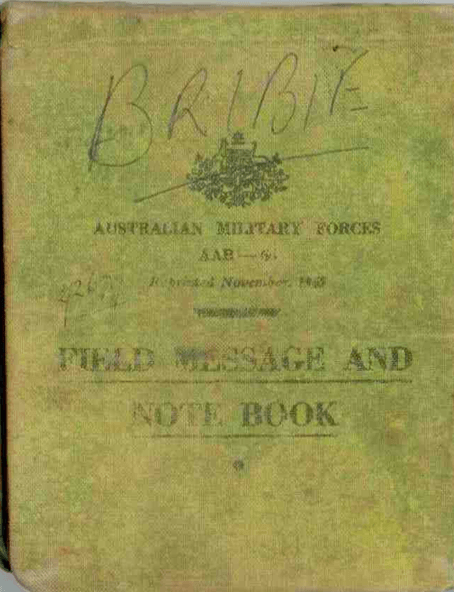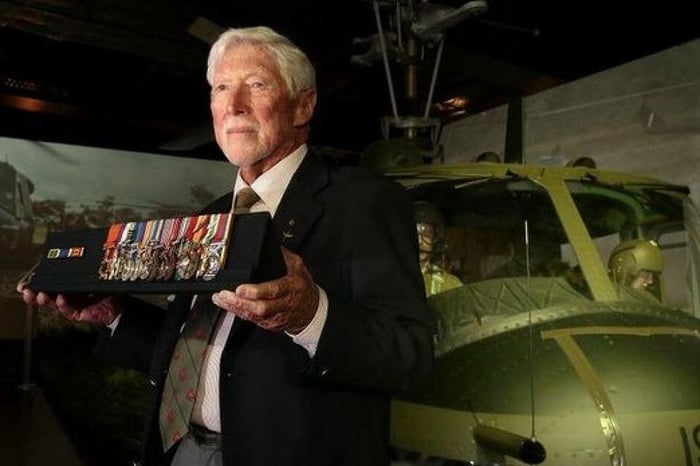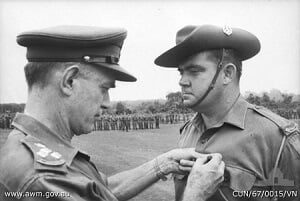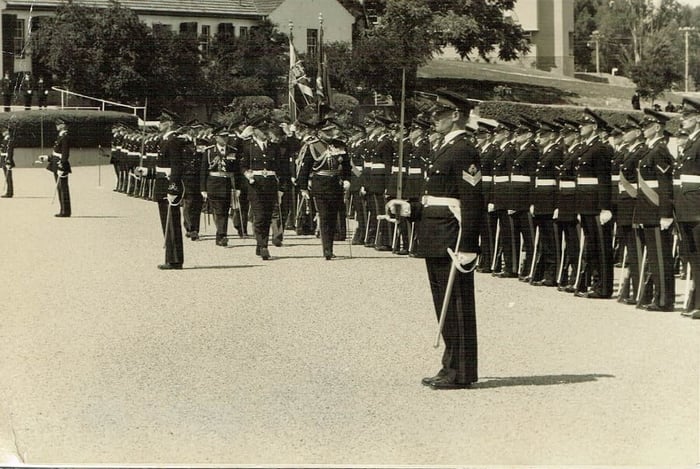
Phantoms of Bribie
Most of us have endured a long bus or plane ride where the passenger beside you is intent on sharing their life story. For the most, it is an embuggerance to the journey but on occasions – rare occasions – the story is so rich and entertaining that a swarm develops and passengers for rows about crank necks and lean over seats to listen in.
Ian Mackay, who turns 82 this year, is that rare storyteller. His book Phantoms of Bribie takes its title from the band of men of Bravo Company, 6th Battalion, The Royal Australian Regiment (6RAR) who under his command fought the Battle of Bribie near the village of Hoi My in South Vietnam on 17 February 1967. Why they are Phantoms is revealed on the journey and is in itself an interesting aspect of a tradition that carries on to this day.
But back to the journey. Mackay’s story affords the reader more than an account of a single battle or the life of a professional soldier. Like all good yarns well told it drifts in and about topics and times but the threads are bare and easily followed for the engrossed passenger. It is a story of life, love of people, the realities of war and personal endeavour.
Mackay says there was nothing in his early life that would predestine him to join the profession of arms. Born in Sydney in 1934 and for the most raised there, other than a few years’ stint in the bush in the 1940s, he like most lads of the time loved sport (any sport but particularly Rugby and cricket). Like many, he encountered men who had served in the Wars but none so close as to direct his life pathway. Sport on the other hand was (and still is) a big part of his life and one can almost see his eyes widen on the pages with every reference to sporting achievements or hear his resolved sigh when things did not go well. Mackay had his share of both in sport. He played both cricket and rugby at representative levels and, if not for a bout of illness, came within a whisker of selection for the 1957 Wallabies 7 month Tour of Europe and America. Accidents, illnesses and the like denied him his place on the international sporting arena many times over the years.
Mackay’s story suggests he himself may not be certain as to why he entered the Royal Military College, Duntroon in 1952 but he did and thus began a career that would see him spend much of his service in South and South East Asia during turbulent times. His obsession with Indo-China started at Duntroon and carried on through his military life.
After a stint in the late 1950s with what would become the Special Air Services Regiment in Perth, he was posted as an Instructor at the British Army Jungle Warfare School in Malaya in 1961, working alongside the legendary Gurkha troops. With Vietnam gaining much attention worldwide Mackay has no doubt as to his purpose in Malaya: “In essence, we were a battle school for Vietnam, with the credentials of the successful Malayan Emergency campaign behind us.”
Mackay was back in Australia in 1964 to instruct at RMC, but he had great awareness of the situation in Vietnam, more so than most, having accompanied Vietnamese Rangers on operations in 1962-63. It was not until 1966 that his training and understanding of the region would come into play when he took command of B Company with 6RAR.
His account of his war in Vietnam is both sobering and at times comforting, in so much that he shares enough of that larrikin spirit Australians feast on, that one can imagine the boys – both conscripts and volunteers – made the most of the cards dealt.
By Chapter Five he is ready, as are we listening in, to share the story of Bribie. His account is detailed in both tactics and emotion. Such is life in a war that on the morning of the 17th he was planning a quick getaway to Saigon in the afternoon and B Company was to be at normal duties at Nui Dat. But in war plans change.
Operation BRIBIE was a quick reaction operation launched at 1300 hours on Friday 17 February to establish a ‘blocking’ position to prevent enemy forces that had attempted a major ambush the night before from withdrawing to the east. By Mackay’s own admission he recalls little of the pre-mission briefing other than he thought the enemy intelligence was “sketchy”.
At 1405 when he and B Coy arrived at the ‘Light Green’ Landing Zone (some 20 minutes after A Coy.) the enemy had the landing zone in their sights and B Coy became the first Australian company to experience a “hot” landing. Unlike the Battle of Long Tan fought six months earlier, the enemy at Bribie were entrenched and well protected. His initial assessment that intelligence was sketchy proved true - instead of a “camp”, it was a dug-in, fortified enemy position.
Despite the situation, Mackay’s men calmly laid out a tape to mark the ‘start line’ from which B Coy would assault the enemy positions. And launch they did. Mackay charged along his designated line right up the centre only to find his men and he wedged in a horseshoe ring of well-concealed entrenched enemy positions with no more than 30 metres to the front and flanks. “As B Company Commander, locked in a fierce fire-fight with a determined dug-in enemy, I was thinking of how we could get on top of these troops. They were standing their ground and fighting like demons, despite being hit by direct fire and artillery. As well, I needed to get help for our casualties.”
The battle of Bribie continued for some five hours and Mackay’s account takes no shortcuts in his recall or in using other accounts to clarify the situation for the reader.
When Mackay refers to his men in the book it is with great compassion and respect for those living and lost. They are his brothers in arms and will always be.
Mackay went on to serve with Army till 1978 and then turned his attention and skills to the corporate world. His yarns about whom he met, the work he was involved in, and how life continued after war, are no less captivating than his youthful exploits or his command in war.
Throughout the book, there are lessons, both for those in the military and those in the international corporate sector, from a man who has succeeded in both worlds.
Phantoms of Bribie is a story of a life well-lived.
Published by Big Sky Publishing




















